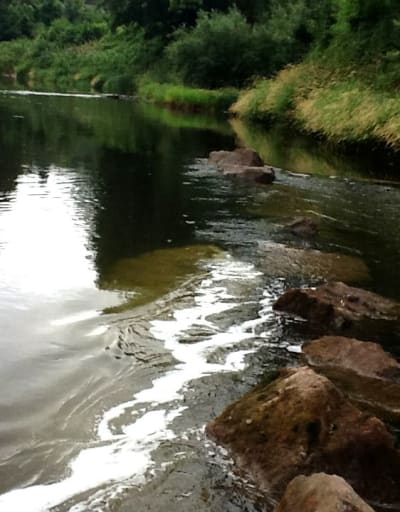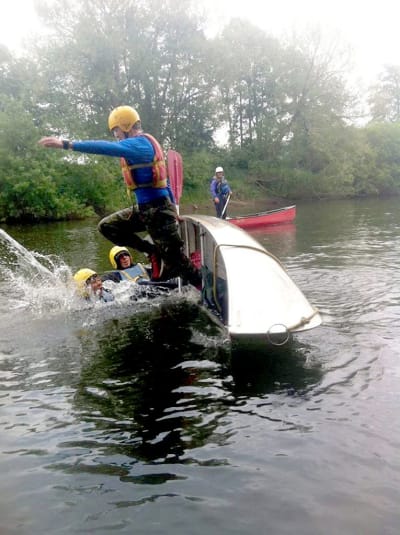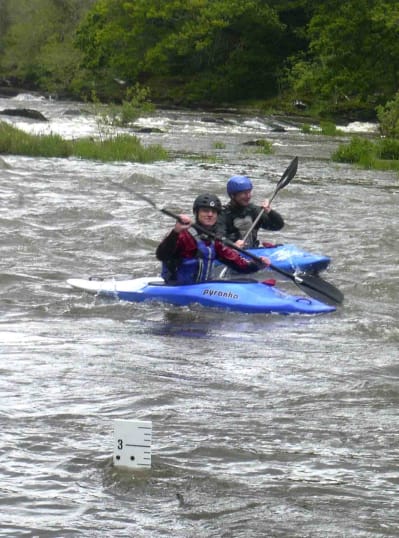
Thursday 20th December, 2018
With some quite significant issues dominating our headlines, British Canoeing’s launch of their “Clear Access, Clear Waters” campaign last month might well have escaped many people’s attention.
Focussing on England, their “charter” is the latest attempt to push forward the UK’s canoe representative bodies’ agenda for free, open access to all inland waterways. It paints paddle sport as a benign activity that will, amongst other things, help cure the nation’s obesity and mental health problems while also repairing the environment. It is not a report that depends on accurate factual evidence.
Quite how much traction their charter will gain in Westminster is uncertain. Politicians’ minds will be no doubt be focussed elsewhere and the Brexit dust may have to settle before it gets any serious attention.
However, there is always a danger that statements, if repeated often enough, become accepted as true. British Canoeing’s belief that there are universal rights to navigate is not held widely (Government and almost everyone else agrees that public navigational rights only exist where enactments have been passed). Nonetheless, British Canoeing argue that legislation is needed to confirm this. They have had ample time and opportunity to test it in the courts.

The Foundation is one organisation that has brokered and run such arrangements and our experience is quite different. On the Wye and Usk, national canoe bodies walked away from the original access arrangement firstly in 1985 and again in 2005, refusing to re-join discussions when resurrected in 2007. When they finally joined the management group a few years ago, they have not hesitated to decry the arrangements and have failed to comprehend the delicate balance between negotiated opportunities to paddle with the need to observe the details of any such arrangements.
On the Dee (the other Welsh river where arrangements have been negotiated), they have caused even more trouble. Many have taken this to be a deliberate ploy to show locally agreed arrangements in poor light, thereby hoping to force the Government’s hand into legislating. What is clear to us is that the image of unfair victimisation painted by organisations such as British Canoeing needs to be challenged.

The charter also continues a long-term habit of viewing the benefits of canoeing solely in a vacuum. In other words, no consideration is made to any negative impacts on wildlife, tourism, to the wellbeing of other, legitimate river users and local communities that would result from open access. British Canoeing even imply that connecting young people to their environment in the future is dependent on open access. This is an absurd notion to all those whose passion for the aquatic environment began without a canoe!
The Foundation has long argued that more access arrangements need to be negotiated on appropriate rivers across the UK. Unfortunately, in many cases the subversive activity of national canoe organisations has discouraged those in a position to effect such arrangements.
But, as demonstrated on the Wye and Usk, such organisations do not need to be involved. In fact, many local and visiting canoeists do not agree with their extreme views. The charter itself states that only a small percentage of canoeists are members of British Canoeing. The large majority who are not members are usually very open to negotiation and reasonable compromise if it means paddling without conflict.
Politicians caving in to the demands of an aggressive, overtly political organisation that is receiving public funding (Sport England) would be a huge injustice. The one guaranteed result would be the penalisation of many individuals who have spent so much time, effort and money in real environmental work and whose mental and physical wellbeing relies on forms of recreation other than paddling.
All the best from WUF.
